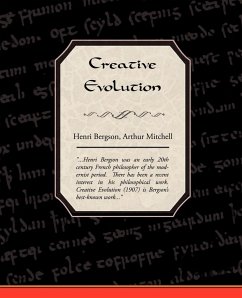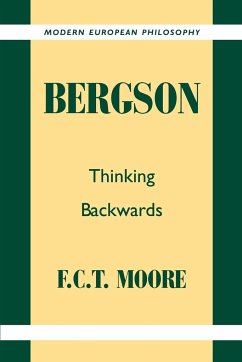
Creative Evolution
Versandkostenfrei!
Versandfertig in 1-2 Wochen
28,99 €
inkl. MwSt.

PAYBACK Punkte
14 °P sammeln!
Henri Bergson was an early 20th century French philosopher of the modernist period. There has been a recent interest in his philosophical work. Creative Evolution (1907) is Bergson's best-known work. Bergson responds to the challenge presented to our habits of thought by modern evolutionary theory. He argues that the theory of knowledge must have its roots in a theory of life. Bergson uses examples from biology to support his ideas, thus not limiting his arguments to purely intellectual concepts. His thesis states that Darwinian evolution is only part of the answer. There is a creative urge in...
Henri Bergson was an early 20th century French philosopher of the modernist period. There has been a recent interest in his philosophical work. Creative Evolution (1907) is Bergson's best-known work. Bergson responds to the challenge presented to our habits of thought by modern evolutionary theory. He argues that the theory of knowledge must have its roots in a theory of life. Bergson uses examples from biology to support his ideas, thus not limiting his arguments to purely intellectual concepts. His thesis states that Darwinian evolution is only part of the answer. There is a creative urge in life that defines the direction of evolution. Bergson states that "each organism "wills" its variation in seemingly random fashion, but at a higher order, it produces the regularity of genera."



.jpg)









